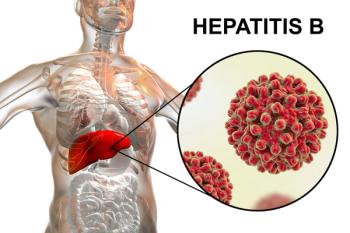
Reducing the Misuse of Antibiotics in Malaria and Dengue
Antimicrobial stewardship remains important in tropical diseases such as malaria and dengue.
Measures should be taken to reduce misuse of antibiotics for these tropical diseases to preserve antimicrobial stewardship, according to a review published in Tropical Medicine and Infectious Disease.1
Punnee Pitisuttithum, professor in the department of clinical tropical medicine, head of the vaccine trial center, and deputy dean for translational medicine and innovation at Mahidol University, in Bangkok, Thailand and colleagues conducted the review. Researchers looked at studies that examined antibiotic use for malaria and dengue in hotspots throughout the world, including Sub-Saharan Africa and south and southeast Asia.
Acute Undifferentiated Febrile Illness and Antibiotic Use
According to the study authors, many tropical diseases present as acute undifferentiated febrile illness (AUFI). AUFI is frequently caused by viral illness, so clinical history and examinations are critical evaluations for the correct diagnosis to prevent antibiotic misuse. In south and southeast Asia, researchers reported that 11.8% of AUFI is caused by dengue. Several review studies have found that malaria contributes to many AUFI cases in Africa. According to Pitisuttithum and colleagues, AUFI causes uncertainty in early diagnosis.
“The non-specificity of symptoms and signs and the lack of availability of diagnostic tests often lead to empirical and irrational use of antibiotics,” the authors wrote. Researchers said that this uncertainty of diagnoses and widespread use of antibiotic treatment occurs in both low and high-income countries. Researchers said the review found a wide range of antibiotic misuse for dengue and malaria, and that misuse of antibiotics hurts antimicrobial stewardship.
Antibiotics are ineffective in treating dengue and malaria as they are not bacterial infections. Dengue has supportive treatment only, while malaria is treated with antimalarial drugs, which like antibiotics can be reduced in effectiveness if they are misused.
Rapid Testing Can Reduce Antibiotic Use
One way to reduce the misuse of antibiotics is through rapid diagnostic testing, according to the authors. “[Rapid diagnostic tests] are the supporting tools for the definite diagnosis in early AUFI to limit the overuse of empirical antibiotics,” the authors wrote. However, they noted that rapid diagnostic tests have several limitations; for example, testing accuracy of malaria rapid diagnostic tests are affected by temperature and humidity, a feature of the climates where the disease is often endemic.
“Dengue [rapid diagnostic tests] provided high sensitivity and specificity, whereas the cross-reactivity and past infection detection are still controversial,” they noted. Researchers said that while rapid diagnostic tests can prevent unnecessary antibiotics from being prescribed for dengue and malaria, a review of previous literature showed antibiotics were still being prescribed in 13-92.7% of cases and usage was high with positive rapid diagnostic tests. This was especially true in cases where malaria rapid diagnostic tests were negative. Researchers said more antibiotics are prescribed in cases of malaria than for dengue. They also noted malaria control programs that reduce overall cases, such as nets treated with insecticide and the use of indoor spraying in Uganda, decreased the use of antibiotics in malaria treatment 70% in 5 years.
When Antibiotics are Necessary
Antibiotics may be necessary in cases of bacterial co-infection, researchers said. For dengue, the authors reported the incidence of co-infection was fairly low, ranging from 7% to 25%. Bacterial co-infection in malaria leads to higher numbers of morbidity and mortality, and is most common in falciparum malaria.1 Rates of co-infection for malaria varied between 1.07% in Vietnam to 14.9% in Myanmar. Researchers noted that there was no evidence of misuse of antibiotics in malaria and dengue being responsible for the emergence of multidrug resistance bacterial strains in the studies reviewed.
To reduce unnecessary antibiotic use in the treatment of dengue and malaria, researchers suggest a multidisciplinary antimicrobial stewardship team. Appropriate antibiotic treatment can be decided with local epidemiological data, clinical judgment, and testing, study authors said. “Rapid antibiotic cessation, including disease control or elimination, is the mainstay of [antimicrobial stewardship] in tropical diseases. We encourage local and international sectors to foster regular antimicrobial use evaluation in tropical diseases,” researchers said, noting that this is an effective way to reduce misuse of antibiotics in the treatment of dengue and malaria.
Reference
1. Siribhadra A, Ngamprasertchai T, Rattanaumpawan P, Lawpoolsri S, Luvira V, Pitisuttithum P. Antimicrobial stewardship in tropical infectious diseases: focusing on dengue and malaria. Trop Med Infect Dis. 2022;7(8):159. doi:10.3390/tropicalmed7080159
Newsletter
Pharmacy practice is always changing. Stay ahead of the curve with the Drug Topics newsletter and get the latest drug information, industry trends, and patient care tips.























